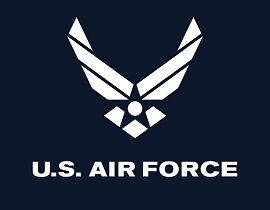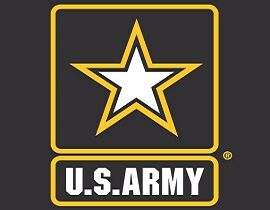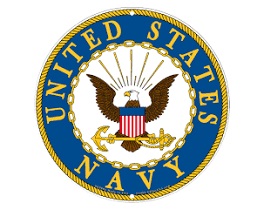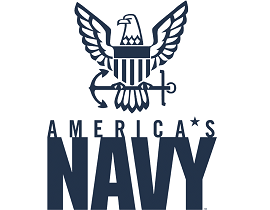Defense Travel System (DTS) – Defense Travel Management Office
The Defense Travel System (DTS) is the end-to-end travel management system used by DoD travelers to create official travel authorizations TDY (Temporary Duty) travel orders, prepare and approve reservations, and to generate travel vouchers.
What is DTS?
The Defense Travel System has many benefits for DoD travelers. The platform allows for a reduction in transaction costs for the government, and for the traveler it allows for timely payment of travel claims. Generally a travel voucher must be completed by a military or government traveler within 5 business days after the TDY assignment. DTS shortens the time to preparing for a travel assignment by empowering the user with the ability to rapidly create travel authorizations and vouchers. Personalized online reservations and itinerary changes can be made easily, and pre-travel entitlements for official travel (such as meals, incidentals and Per Diem Lodging Rates) can be auto-populated. DTS also has a fully automated approval process which allows for direct deposit and split disbursements after travel. A split reimbursement is when a portion of the travelers payment is made to the traveler’s personal bank account and a second payment is made to the Government Travel Charge Card (GTCC) vendor (which makes it easier for settling a travel voucher).
DTS Travel Reservations
The DTS website is available 24/7. Reservations can be made directly in DTS for accommodations through the Privatized Army Lodging (PAL) program, the Army Public-Private Venture (PPV) program, and the Navy PPV program.
Why It’s Important to Keep Your DTS Profile Updated
Updating your DTS profile is important to ensure you receive your travel itinerary at the correct email address. To ensure a timely payment of a travel voucher, and to ensure it is sent to the correct bank account, or travel card, all DTS users should regularly update bank information, and Government Travel Charge Card (GTCC). Here are the most important account items verify and update regularly:
• Government Travel Charge Card (GTCC) – Be sure to update both the expiration date and card number – When you receive a new GTCC you must update the card number and/or expiration date in updated within your profile (this is not updated automatically). Failure to
update GTCC information can result in a declined transaction.
• Email address – Without a current email address on file, you will not receive itinerary and trip details (reservation confirmations) or
updates on the status of your authorization, and travel voucher after filing for reimbursement.
• Banking information – If you recently closed an account, your reimbursement could be delayed. Ensure you have the correct
• Phone numbers – If there is a problem with you travel reservations, your TMC (Travel Management Coordinator) will need a current contact number to reach you.
• Mailing address where you physically receive mail.
• Emergency contact information or next of kin.
Who Can Use the Defense Travel System?
DoD travelers are required to use the Defense Travel System (DTS) for certain types and circumstances of official travel. There are certain types of travel, and/or circumstances of travel that DTS does not support. Below is a summary of when DTS can or cannot be used:
Temporary Duty (Joint Travel Regulation, Chapters 2 & 3)
A Service member, a DoD civilian employee, a dependent of a Service member or civilian employee, and an invitational traveler may use DTS for Temporary Duty (TDY) travel. DTS does not support the following TDY travel scenarios:
• A civilian employee who is traveling on a long-term TDY at a single location for more than 365 consecutive days cannot use DTS. Although the DoD may designate this duty as a temporary assignment, the Internal Revenue Service (IRS) may consider a TDY assignment under these circumstances to be permanent (much like a PCS: Permanent Change of Station), and therefore the reimbursement may be treated as taxable income (see JTR, para 020313). Another scenario is if a civilian employee receives an IRS Form W-2, Wages and Tax Statement…In this instance, the civilian employee must submit the travel voucher to the employee’s local servicing finance office, and not through DTS.
• A civilian employee appointed to perform diplomatic duties under Title 22 U.S.C., Section 2385(d), cannot use DTS.
• A civilian employee performing official assignments that are funded by a non-DoD Agency (ie: Department of Energy, Department of State, etc.) must follow that Agency’s travel and transportation policies and guidelines, and in this instance, the traveler cannot use DTS.
• A traveler performing TDY in conjunction with a permanent change of station (PCS) cannot use DTS. The traveler must process the TDY with the final PCS travel voucher.
• A traveler who initiates a TDY trip in a travel system other than DTS must also finalize the trip within the original system and cannot use DTS for any portion of that trip.
DTS does support the following travel scenarios:
• If a Military Service member is on a TDY for 31 or more days and is authorized or approved travel allowances to ship household goods (HHG) or unaccompanied baggage then the actual shipping costs may be reimbursed up to the Government’s Constructive Cost (GCC) for the TDY HHG weight allowance pounds listed in JTR, Table 2-25. These shipments must be arranged through the Transportation Officer (TO). If the TO authorizes the traveler to personally arrange the shipment, the TO must provide the traveler the GCC documentation, and the traveler must upload the GCC documentation provided by the TO, and the shipment’s receipts when submitting their DTS voucher.
• If a civilian government employee is on a TDY for 31 or more days and is authorized or approved travel allowances to ship unaccompanied baggage then the actual shipping costs may be reimbursed up to the Government’s Constructive Cost (GCC) for the TDY HHG weight allowance as referenced in JTR, par. These shipments may be arranged through the Transportation Officer (TO). If the TO authorizes or the employee elects to personally arrange the shipment, the TO must provide the traveler the GCC documentation, and the traveler must upload the GCC documentation, provided by the TO, and the shipment’s receipts when submitting their DTS voucher.
Who May Use the Defense Travel System?
Local Travel (JTR, Chapter 2)
Official travelers who may use DTS include:
• U.S. Military Service Members :
• DoD civilian employees
• Dependents of a Military Service member or civilian employee
• An invitational traveler may use DTS for local travel.
DTS does not support the following local travel scenario:
• The civilian employee is directed to work at an alternate location for more than a year and commutes daily to that alternate work location for 35 or more work days within 1 calendar year. If a civilian employee meets both of these conditions, then the IRS may consider reimbursements to be taxable income. The civilian employee receives an IRS Form W-2, Wages and Tax Statement. The civilian employee must submit a voucher to the servicing finance office, not through DTS.
Invitational Travel (JTR, Chapter 3)
An invitational traveler may use DTS for TDY and local travel. A Service member or civilian employee is not considered to be an invitational traveler. Refer to the JTR, paragraph 030501, for invitational traveler allowances, requirements and restrictions.
Government-Funded Leave (JTR, Chapter 4)
A Service member, a DoD civilian employee, a dependent of a Service member or civilian employee may use DTS for Government funded leave travel. If Government transportation is available, then travelers must use that option. If the AO determines that Government transportation is not available, then the AO may authorize commercial transportation.
Permanent Duty Travel (JTR, Chapter 5)
Typically, a Service member, a DoD civilian employee, a dependent of a Service member or civilian employee must not use DTS for permanent duty travel.
DTS does support the following permanent duty travel scenarios:
• A civilian employee and dependent may use DTS for Renewal Agreement Travel (RAT) when the additional tour of duty is at the same permanent duty station (PDS) outside the continental United States (OCONUS). However, if the following OCONUS tour is at a different PDS, a civilian employee and dependent must not use DTS for RAT. In this scenario, the RAT is authorized and reimbursed through a PCS order and voucher.
• A Service member and dependent may use DTS for in-place consecutive overseas tours (IPCOT) leave travel. However, if the following OCONUS tour is at a different PDS OCONUS, then a Service member and dependent must not use DTS for COT travel. In this scenario, the COT travel is authorized and reimbursed through a PCS order and voucher.
• If a dependent student meets the eligibility requirements in the JTR, Table 5-26, 051816, or paragraph 053806, then a Service member or civilian employee may use DTS for the dependent student’s travel. However, if the student travels by a privately owned vehicle, then the student is paid a monetary allowance in lieu of transportation (also known as MALT) and the student must submit a voucher to the servicing finance office, not through DTS.
Evacuation Travel (JTR, Chapter 6)
A Service member is never evacuated. If an evacuation occurs and the Service member is issued a TDY order, then the Service member may use DTS.
DTS does not support the following evacuation scenarios:
• If a Service member is issued a PCS order (due to the evacuation), then DTS must not be used. If a dependent of an active-duty Service member, a civilian employee, or a civilian employee’s dependent is evacuated, then DTS must not be used. An active-duty Service member’s dependent, a civilian employee, and a civilian employee’s dependent must submit a voucher to the servicing finance office, not through DTS.
Foreign Military Sales (FMS) Program
A U.S. Service member or a civilian employee performing official travel in connection with the Foreign Military Sales (FMS) program may use DTS. Prior to creating an expenditure against an FMS appropriation, authority must be obtained for the expenditure through DTS from the Defense Integrated Financial System, the central accounting system, and authoritative sources for FMS Trust Fund control and management from DFAS/JAXBA/IN. After obtaining expenditure authority, these FMS funds are set aside and not used for any other purpose.
Foreign National
A foreign national may use DTS if all of the following conditions are met:
• A foreign national is eligible to receive travel and transportation allowances in accordance with the JTR.
• A foreign national has a valid taxpayer identification number (TIN) and either a U.S. bank account or the ability to receive a U.S. Treasury check.
• If a foreign national does not have a valid TIN, then the foreign national cannot use DTS (the Treasury Department’s Bureau of Fiscal Service mandates that anyone receiving more than $200 in payment in a year must have a valid TIN).
DTS does not support the following foreign personnel:
• Foreign military personnel traveling under Title 22 U.S.C. (security assistance authority) and paid in accordance with the Security Assistance Management Manual.
• A Foreign Liaison Officer paid in accordance with Title 10 U.S.C. (liaison officer authority).
• The JTR’s authority does not apply to these individuals and even if they have a valid TIN and a U.S. bank account, they are prohibited from using DTS.
Personnel Exchange Program
A foreign officer who is part of the Personnel Exchange Program (PEP) may use DTS if all of the following conditions are met:
• A review of the agreement between the foreign officer’s government and the U.S. determines that a PEP officer may use DTS.
• The foreign officer is traveling in support of a U.S. mission.
• The foreign officer is not traveling for training or foreign government purposes.
• The foreign officer has a valid TIN.
• The foreign officer is authorized the same travel and transportation allowances as a U.S. officer.
Cooperative Program Personnel
Cooperative Program personnel may use DTS if all of the following conditions are met:
• The relevant cooperation agreement authorizes the same travel and transportation allowances as a U.S. officer.
• The travel is in direct support of the U.S. Government.
• The travel is not covered by the Security Assistance Management Manual.
• The traveler has a valid TIN.
Government Contractors
A DoD personal services contract employee may use DTS for TDY travel. Government reimbursement to the Government contractor or contractor’s employee for travel is determined by the terms and conditions of the contract (see Department of Defense Instruction 3020.41, “Operational Contract Support (OCS)”). All other Government contractors are prohibited from using DTS for travel. The regulations in the Federal Acquisition Regulations, subpart 31.205-46, govern Government contractor and contractor’s employee travel costs.
Non-appropriated Funds (NAF) Government Employees
A Government employee traveling on Non-appropriated Fund Instrumentality (NAFI) business whose travel and transportation allowances are paid with non-appropriated funds cannot use DTS. The Services are responsible for written NAFI issuances on which the local NAFI or morale, welfare, and recreation commands base their policy.







